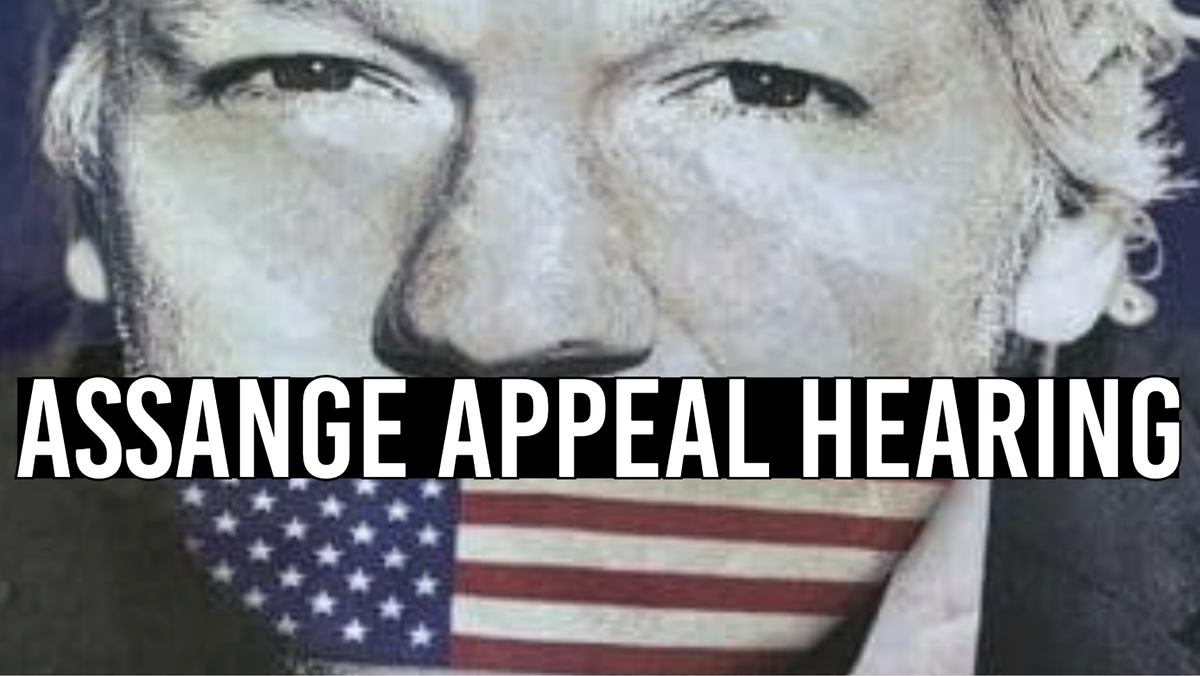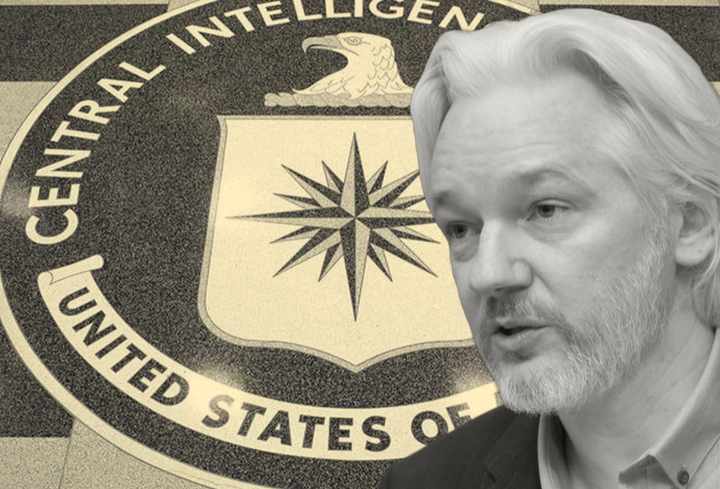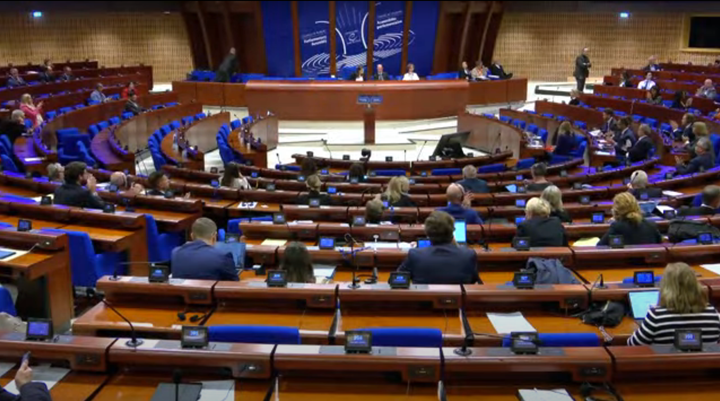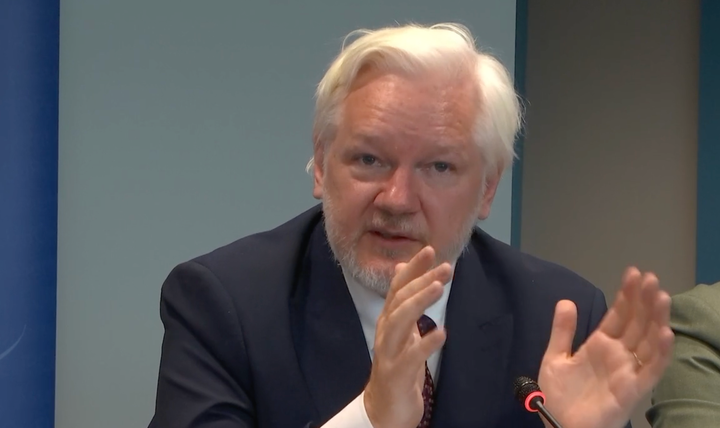UK Appeal Hearing: Assange Prosecution Is Politically Motivated
The legal team for WikiLeaks founder Julian Assange has long maintained that the “political opinions and political actions” of Assange led to his prosecution.

Editor’s Note: The following was published as part of a “Countdown To Day X” series highlighting key aspects of WikiLeaks founder Julian Assange’s request to appeal his extradition to the United States.
The legal team for WikiLeaks founder Julian Assange has long maintained that the prosecution under President Donald Trump was “politically motivated at every stage” and that it was the “political opinions and political actions” of Assange that led to “his prosecution in the first place.”
Extradition from the United Kingdom is supposed to be opposed when the request is “improperly motivated by an ‘extraneous consideration.’” That covers any person targeted as as a result of their “race, religion, nationality, gender, sexual orientation, or political opinions.”
Assange’s legal team previously outlined [PDF] the political opinions that allegedly made him a target: a belief in “open society” and freedom of expression; antiwar, anti-surveillance, and anti-imperialism views; a belief in “political transparency as a means” to achieve “democratic accountability,” including the public’s right to access information on “political corruption, war crimes, torture, etc; and support for “exposure of crimes against humanity and accountability for such crimes.”
An additional political opinion could be added as well—the belief that crimes committed by the United States and Western European countries are equal and as important to expose and investigate as crimes by the West's designated adversaries.
While Trump was president, he signed a U.S. counterintelligence strategy document [PDF] that spelled out how his administration viewed “ideologically motivated entities, such as hacktivists, leaktivists, and public disclosure organizations,” like WikiLeaks, as “significant threats.”
President Barack Obama's administration attempted to undermine the impact of the Afghanistan war logs published by WikiLeaks by telling reporters that the organization was “not an objective news outlet but rather an organization that opposes U.S. policy in Afghanistan.”
Furthermore, according to Assange’s legal team, political opinions that are protected do not have to necessarily be opinions that the person facing extradition actually holds. They may be political opinions that are “imputed to the individual citizen by the state which prosecutes him.”
A chief example is Mike Pompeo, who publicly labeled WikiLeaks a “non-state hostile intelligence service.” In his first speech as CIA director in 2017, Pompeo slanderously ascribed political opinions to Assange that would help justify prosecution.
“I’m quite confident that had Assange been around in the ’30s and the ’40s and the ’50s, he would’ve found himself on the wrong side of history. We know this because Assange and his ilk make common cause with dictators today,” Pompeo declared.
“Yes, they try unsuccessfully to cloak themselves and their actions in the language of liberty and privacy. But in reality, they champion nothing but their own celebrity.”
“Their mission [is] personal self-aggrandizement through destruction of Western values,” Pompeo continued. “They do not care about the causes of the people they claim to represent. If they did, they would focus instead on autocratic regimes in this world that actually suppress free speech and dissent. Instead, they choose to exploit the legitimate secrets of democratic governments, which has so far proven to be a much safer approach than provoking a tyrant.”
Pompeo equated Assange’s “public advocacy” to “treason” because he and other top CIA officials were furious that Assange had published the “Vault 7” materials. The leak that exposed CIA hacking operations was the “largest leak of classified information in CIA history.” In fact, according to Yahoo News, Pompeo initially tried to avoid briefing Trump because he was “fearful of the president’s wrath.”
Attorney General Jeff Sessions, who “prioritized” the arrest of Assange as Pompeo unleashed his rage, made it clear during his confirmation hearing that he supported prosecuting certain media organizations which publish leaks. “You could have a situation in which a media is not really the unbiased media we see today, and they could be a mechanism through which unlawful intelligence is obtained.”
Sessions opposed a federal reporter’s shield law as a U.S. senator. “Many news organizations that will be covered under this law represent ideologies, foreign interests directly contrary to the United States’ national security interests."
“If anything, the problem this country has is we’ve been unable to maintain national security secrecy,” Sessions further stated.
Early in Trump’s presidency, he openly complained, “Leaking, and even illegal classified leaking, has been a big problem in Washington for years.” Trump added, “The spotlight has finally been put on the low-life leakers! They will be caught!”
Attorneys for Assange noted that Trump officials denied visas to personnel from the International Criminal Court (ICC) and sanctions were imposed on any person involved in assisting the ICC’s investigation into alleged war crimes committed by U.S. military personnel in Afghanistan.
Assange had spoken out against U.S. policy toward the ICC, particularly on the evidence in U.S. diplomatic cables that reflected a “concerted effort to undermine an international institution."
Considering how the Obama administration did not prosecute Assange, the history of the case strongly indicates that the political opinions of Assange sharpened the Trump administration's opposition to him. Their political motivations led to Espionage Act charges and subsequently Assange's arrest and detention at His Majesty’s Prison Belmarsh.
The British High Court of Justice should show interest in the political nature of the case against Assange and grant a full appeal hearing. Were it not for Assange's political opinions—truly and falsely portrayed by U.S. government officials—the WikiLeaks founder may have avoided prosecution like many other American journalists who have published classified information.
A big thanks to new donors and paid subscribers of The Dissenter. For further reading, here's where you may purchase a copy of my book, "Guilty of Journalism: The Political Case Against Julian Assange."




Comments ()